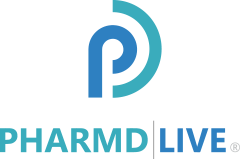By Saima Ayub
Safely managing medications is crucial for senior health. Studies have shown that roughly 90% of older adults aged 65+ take one medicine, 40% take more than five, and 20% take more than ten. The older one gets, the odds of taking more medications increase and can lead to increased side effects and adverse drug interactions. As we age, our body also deteriorates, and this process can also change medication effectiveness. Changes in the body can lead to harmful complications if doses are not correctly adjusted. We asked our board-certified pharmacy team to rank their top five recommendations on what seniors should understand when taking medications. Here’s what they said:
1. Medication Non-Adherence: this is when patients do not take their medications as prescribed. The issue is common, especially among patients with chronic diseases. Some people may not realize the importance of taking medication as prescribed, even if they feel better after 1 or 2 doses. This is especially true with antibiotics. Many patients are unaware that prematurely stopping antibiotic treatment leads to the growth of drug-resistant bacteria. The most prominent reasons for not taking medications as prescribed might be forgetfulness, cost, or pill burden. Investing in a pillbox is helpful for those who take more than five medications and frequently forget doses. The pillbox can help organize medications for a specific time frame which can help avoid missing doses. If cost is an issue, ask your doctor if switching to a generic brand is an option. Also, suggest changing the daily supply from 30 to 90 days, reducing pharmacy visits for refills.
2. Incomplete Medication List: an updated medication list is essential for preventing any potential side effects. All medication prescriptions, OTCs, vitamins, and herbals should be counted on your list. Medication lists give you or your care provider an overview of all the medications you are currently taking and how they interact with each other. For instance, certain OTC antihistamine medications are very sedating and should be taken with caution when taking other sedating prescription medications like narcotic pain medication or muscle relaxants. During visits to the doctor, patients should bring an updated medication list. Hence, their providers have an accurate accounting of the start and stop dates, the dosages, directions, and the purpose of the medication.
3. Unaware of potential side effects/adverse reactions: sadly, older adults are seven times more likely to have unwanted side effects and 2-3 times more likely to experience adverse reactions. We highly recommend that older adults ask their healthcare provider to check for potential interactions and updates on any new medication. Also, if you consume alcohol, tell your doctor as certain medications lose their efficacy with alcohol while the effects of others are enhanced. As we get older, doses need to be adjusted based on how the body can metabolize the medication.
4. Not storing medication properly: Properly storing medications is important to keep them safe and effective. Not storing medications properly can cause them not to work as well or can cause harm to the patient. The best storage for most medications is in a cool, dry place like a dresser drawer, storage box, closet shelf, or kitchen cabinet. Do not store medications in the bathroom, where exposure to temperature fluctuations caused by heat and humidity will alter the efficacy of the medication. Certain medications, like insulin, need to be in the fridge. Special storage labels such as “refrigerate only” will be on these types of medications. It is important to pay attention to all the labels the pharmacist attaches to the medication.
5. Not knowing what the medication is for: patients need to be well informed about why they are taking medication to recognize its importance and motivate them to take it. This helps with compliance and overall improved health. This is an opportunity for the patients to ask questions of their pharmacists if they are unsure what the medication is. The pharmacist will thoroughly review the medication’s purpose, how to take it, and any special instructions. It’s important to know whether it needs to be taken with or without food. Studies have shown that when patients are armed with information about their medication, they become more invested in improving their health.
In conclusion, seniors, in particular, should take special precautions when prescribed more than one medication. These helpful tips will enable you to have better control of your overall health. That is what we do at PharmD Live. We are a pharmacist-led company that provides personalized care to Medicare patients with chronic diseases. In addition to managing a patient’s disease state, our board-certified pharmacists offer a thorough evaluation of a patient’s medication regimen to identify therapy gaps, mitigate medication risks and optimize medication therapy. We are a great resource to guide patients to understand the importance of their medications and keep them safe from adverse drug events.
References:
- Medication Overload and Older Americans. Lown Institute. Retrieved from: https://lowninstitute.org/projects/medication-overload-how-the-drive-to-prescribe-is-harming-older-americans/
- 4 Medication Safety Tips for Older Adults. US Food and Drug Administration. Retrieved from: https://www.fda.gov/consumers/consumer-updates/4-medication-safety-tips-older-adults
- Salvi, Fabio. Marchetti, Annalisa etc. Adverse drug events as a cause of hospitalization in older adults. PubMed. Retrieved from: https://pubmed.ncbi.nlm.nih.gov/23446784/








